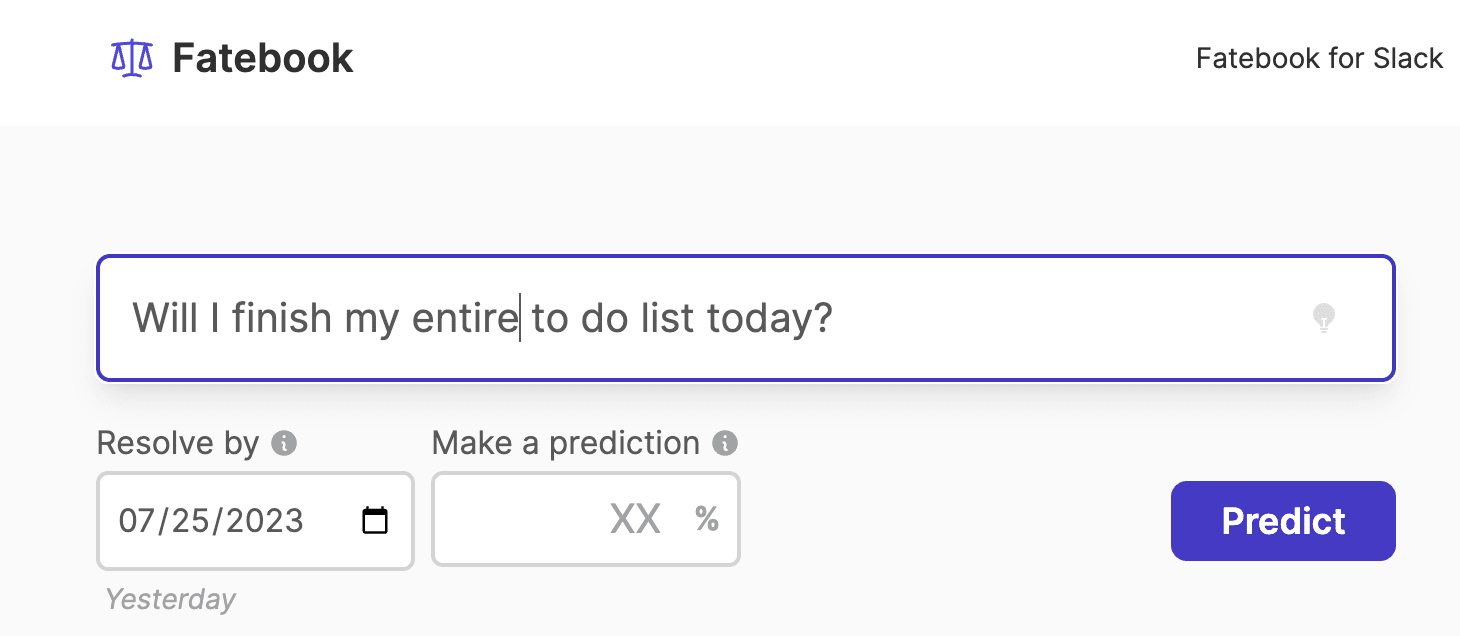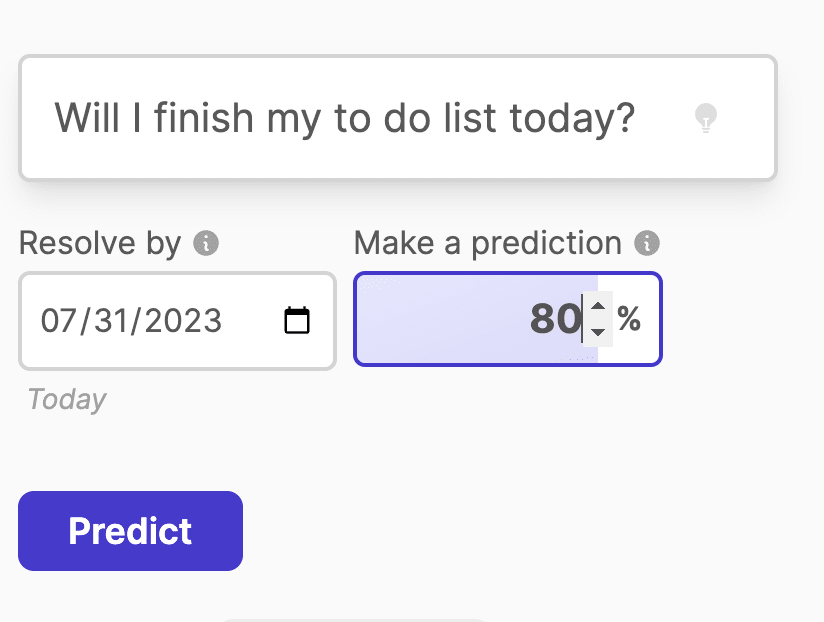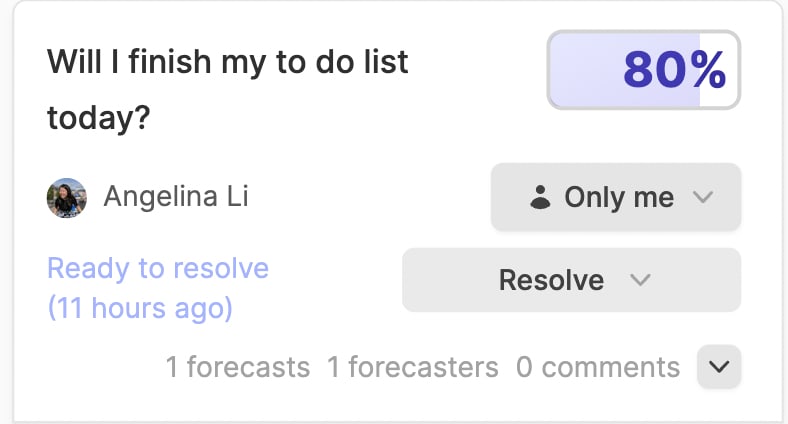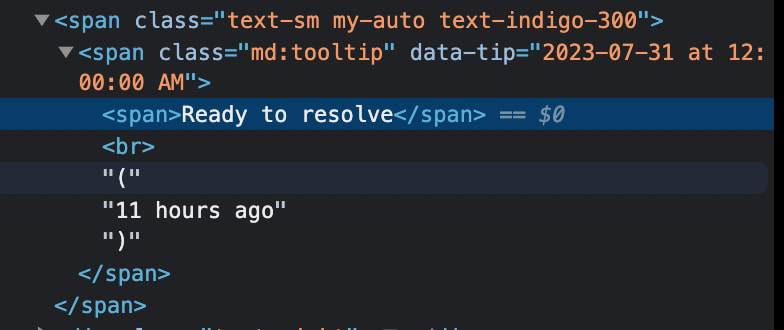Announcing Fatebook: a website that makes it extremely low friction to make and track predictions.
It's designed to be very fast - just open a new tab, go to fatebook.io, type your prediction, and hit enter. Later, you'll get an email reminding you to resolve your question as YES, NO, or AMBIGUOUS.
It's private by default, so you can track personal questions and give forecasts that you don't want to share publicly. You can also share questions with specific people, or publicly.
Fatebook syncs with Fatebook for Slack - if you log in with the email you use for Slack, you’ll see all of your questions on the website.
As you resolve your forecasts, you'll build a track record - Brier score, Relative Brier score, and see your calibration chart. You can use this to track the development of your forecasting skills.
Some stories of outcomes I hope Fatebook will enable
I hope people interested in EA use Fatebook to track many more of the predictions they’re making!
Some example stories:
- During 1-1s at EAG, it’s common to pull out your phone and jot down predictions on Fatebook about cruxes of disagreement
- Before you start projects, you and your team make your underlying assumptions explicit and put probabilities on them - then, as your plans make contact with reality, you update your estimates
- As part of your monthly review process, you might make forecasts about your goals and wellbeing
- If you’re exploring career options and doing cheap tests like reading or interning, you first make predictions about what you’ll learn. Then you return to these periodically to reflect on how valuable more exploration might be
- Intro programs to EA (e.g. university reading groups, AGISF) and to rationality (e.g. ESPR, Atlas, Leaf) use Fatebook to make both on- and off-topic predictions. Participants get a chance to try forecasting on questions that are relevant to their interests and lives
As a result, I hope that we’ll reap some of the benefits of tracking predictions, e.g.:
- Truth-seeking incentives that reduce motivated reasoning => better decisions
- Probabilities and concrete questions reduce talking past each other => clearer communication
- Track records help people improve their forecasting skills, and help identify people with excellent abilities (not just restricted to the domains that are typically covered on public platforms like Metaculus and Manifold like tech and geopolitics) => forecasting skill development and talent-spotting
Ultimately, the platform is pretty flexible - I’m interested to see what unexpected usecases people find for it, and what (if anything) actually seems useful about it in practice!
Your feedback or thoughts would be very useful - we can chat in the comments here, in our Discord, or by email.
You can try Fatebook at fatebook.io
Thanks to the Atlas Fellowship for supporting this project, and thanks to everyone who's given feedback on earlier versions of the tool.







This is great! I love the simplicity and how fast and frictionless the experience is.
I think I might be part of the ideal target market, as someone who has long wanted to get more into the habit of concretely writing out his predictions but often lacks the motivation to do so consistently.
Thank you! I'm interested to hear how you find it!
Very relatable! The 10 Conditions for Change framework might be helping for thinking of ways to do it more consistently (if on reflection you really want to!) Fatebook aims to help with 1, 2, 4, 7, and 8, I think.
One way to do more prediction I'm interested in is integrating prediction into workflows. Here are some made-up examples:
- At the start of a work project, you always forecast how long it'll take (I think this is almost always an important question, and
... (read more)